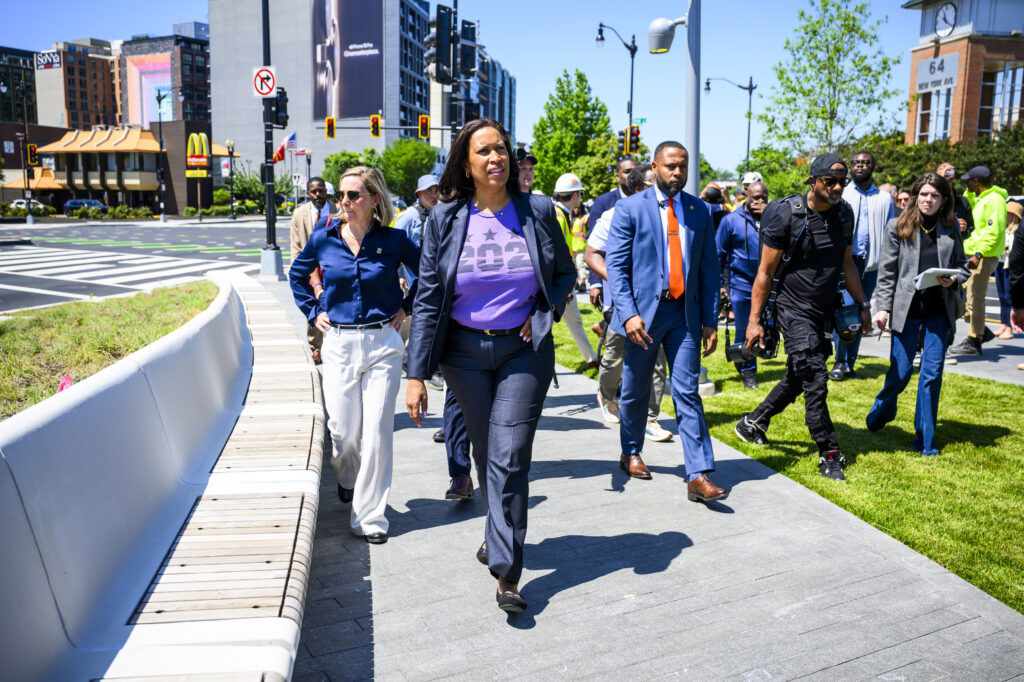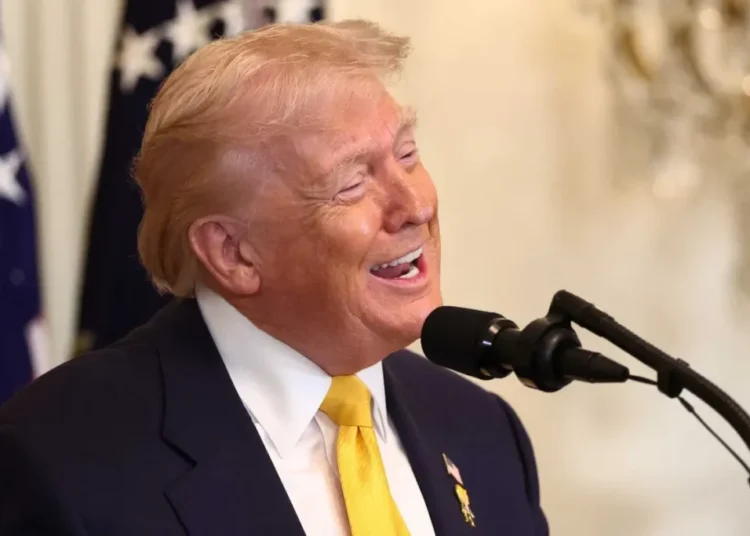D.C. Mayor Muriel E. Bowser (D), who announced Tuesday that she won’t run for a fourth term next year, has been as steady and capable as any big-city mayor in America during her decade in charge. She was not perfect, and we disagreed on many policies, but she served as a useful check on far-left members of the D.C. Council and navigated the capital through many crises.
Her pragmatic style stands in contrast to the current trend in cities of handing power to ideologues. “I used to hate it when people called me pragmatic,” she told The Post, “but that’s kind of the job of being mayor.”
Bowser thinks she will be remembered as a “sports mayor.” The 53-year-old kept the NBA and NHL teams from leaving town and negotiated a deal to bring the NFL back to D.C. We oppose public funding for the stadium but acknowledge it will be exciting for the Commanders to play again at the old RFK site.
The mayor has often prioritized the interests of her hometown over short-term political advantage. Nothing illustrates this better than her dealings with President Donald Trump. The city’s unique constitutional status as a federal district means the president and congressional Republicans maintain significant power over D.C.’s laws and spending. Trump repeatedly called for the federal government to “take over” the city during last year’s campaign and said his lawyers were looking into overturning the Home Rule Act of 1973, which allows residents to elect the mayor and council members.
During Trump’s first term, Bowser often clashed publicly with him. After last November’s election, she understood doing so again would help ease her path to a fourth term. But the mayor also knew the damage that could do to the city’s autonomy. She acknowledges that her more cooperative approach was unsatisfying, but it paid dividends. After taking over the D.C. Police for 30 days, Trump did not try extending the emergency that enabled him to do so. National Guard troops from red states continue to patrol the city, which is unnecessary, but Trump has not sought to cut off federal funding to D.C. the way he has other places.
Bowser’s Tuesday announcement sounds the starting pistol for a consequential Democratic primary next June 16 to replace her. Because D.C. is so blue, the winner of the primary will be the overwhelming favorite in the general election. It’s too early to know how the field will shake out, but it’s easy – and frightening – to imagine the Democratic contest becoming a race to the left.
Progressive activists see an opportunity to import the socialist ideas, which have failed wherever and whenever they’ve been tried, that just got Zohran Mamdani elected mayor of New York. Council member Janeese Lewis George (D-Ward 4), a self-described democratic socialist, has been plotting a mayoral bid against Bowser and hopes to claim the Mamdani mantle.
In 2020, Lewis George ran for office on defunding the police. She’s backed off, saying “it wasn’t the best verbiage used,” but in the summer of 2023 she was the only “no” vote on emergency legislation to address the crime wave. She even led the fight against efforts to lock up dangerous adults accused of violent crimes as they awaited trial.
D.C. would suffer with an ideologue in the mayor’s office. The city would be better served during Trump’s final two years in office with someone who knows how to effectively manage the relationship with the federal government and has demonstrated an aptitude for being able to competently lead a city of approximately 700,000 people.
The post D.C. will miss Mayor Muriel Bowser when she’s gone appeared first on Washington Post.




